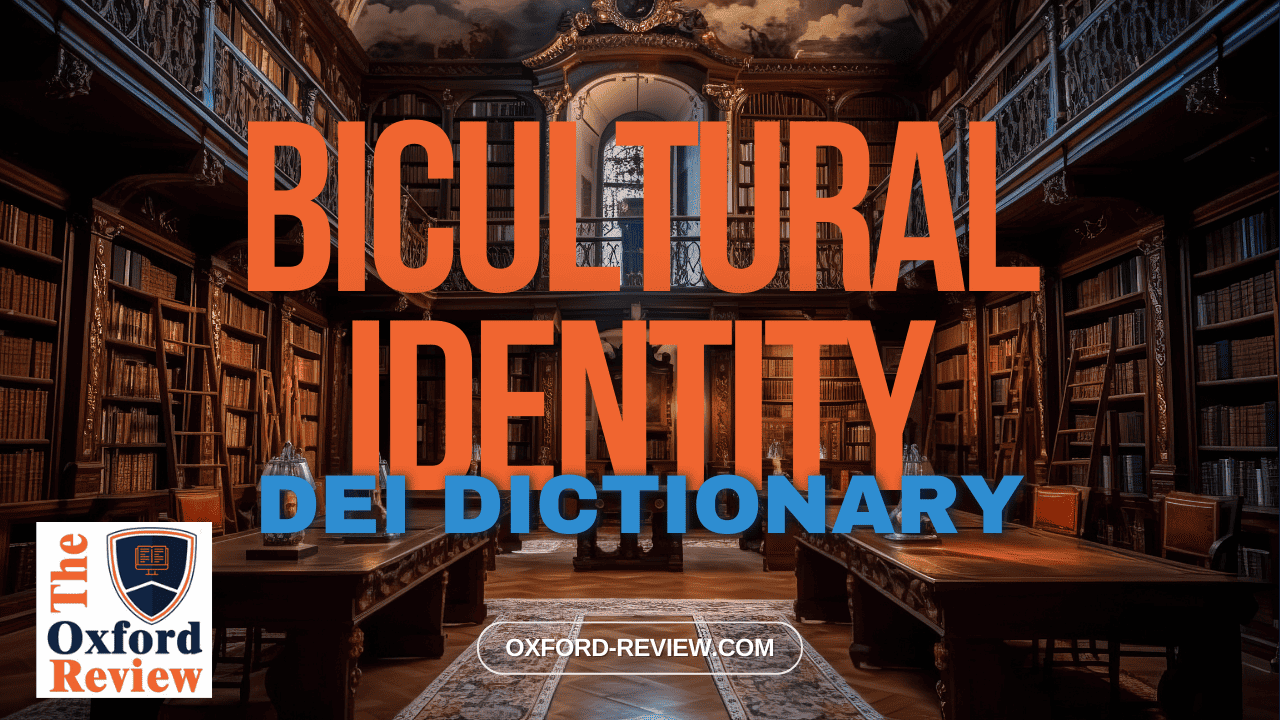Bicultural Identity – Definition and Explanation

Definition:
Bicultural identity refers to the state of belonging to and identifying with two distinct cultural groups. It involves navigating and integrating the values, customs, languages, and social norms of both cultures into one’s sense of self. Individuals with bicultural identities often possess a unique perspective shaped by the blending of their cultural heritages.
Significance:
Bicultural identity is a vital component of DEI efforts, as it highlights the multifaceted nature of human identity and promotes inclusivity. Embracing biculturalism fosters empathy, understanding, and appreciation for diverse backgrounds, thereby creating more equitable and inclusive spaces. Moreover, bicultural individuals serve as bridges between different cultural communities, facilitating cross-cultural dialogue and collaboration.
Example:
Consider a British-born individual of Indian descent who grew up immersed in both British and Indian cultures. This person celebrates Diwali with their family, enjoys traditional Indian cuisine, and speaks Hindi at home, while also participating in British cultural events and adhering to local customs. Their bicultural identity allows them to navigate seamlessly between these two worlds, embracing the richness of both cultures while contributing to a more inclusive society in the UK.
Embracing Bicultural Identity:
To foster bicultural identity within organisations and communities, it is essential to create environments that value and celebrate diversity. This can be achieved through inclusive policies, cultural awareness training, and promoting intercultural exchange. Embracing bicultural identity not only enhances representation but also enriches perspectives, leading to innovation and growth.
Conclusion:
Bicultural identity embodies the beauty of diversity and the power of inclusion. By recognising and embracing the richness of multiple cultural identities, we pave the way for a more equitable and harmonious society. Through DEI initiatives that celebrate biculturalism, we can create environments where individuals feel valued, respected, and empowered to bring their whole selves to the table. Let us embrace bicultural identity as a cornerstone of diversity, equity, and inclusion in our increasingly interconnected world.
References:
Huynh, Q. L., Nguyen, A. M. D., & Benet-Martínez, V. (2011). Bicultural identity integration. Handbook of identity theory and research, 827-842. https://link.springer.com/chapter/10.1007/978-1-4419-7988-9_35
Benet‐Martínez, V., & Haritatos, J. (2005). Bicultural identity integration (BII): Components and psychosocial antecedents. Journal of personality, 73(4), 1015-1050. https://onlinelibrary.wiley.com/doi/abs/10.1111/j.1467-6494.2005.00337.x
Miramontez, D. R., Benet-Martínez, V., & Nguyen, A. M. D. (2008). Bicultural identity and self/group personality perceptions. Self and Identity, 7(4), 430-445. https://www.tandfonline.com/doi/abs/10.1080/15298860701833119
Chen, S. X., Benet‐Martínez, V., & Harris Bond, M. (2008). Bicultural Identity, bilingualism, and psychological adjustment in multicultural societies: immigration‐based and globalization‐based acculturation. Journal of personality, 76(4), 803-838. https://onlinelibrary.wiley.com/doi/abs/10.1111/j.1467-6494.2008.00505.x
Be impressively well informed

Get the very latest research intelligence briefings, video research briefings, infographics and more sent direct to you as they are published
Be the most impressively well-informed and up-to-date person around...
